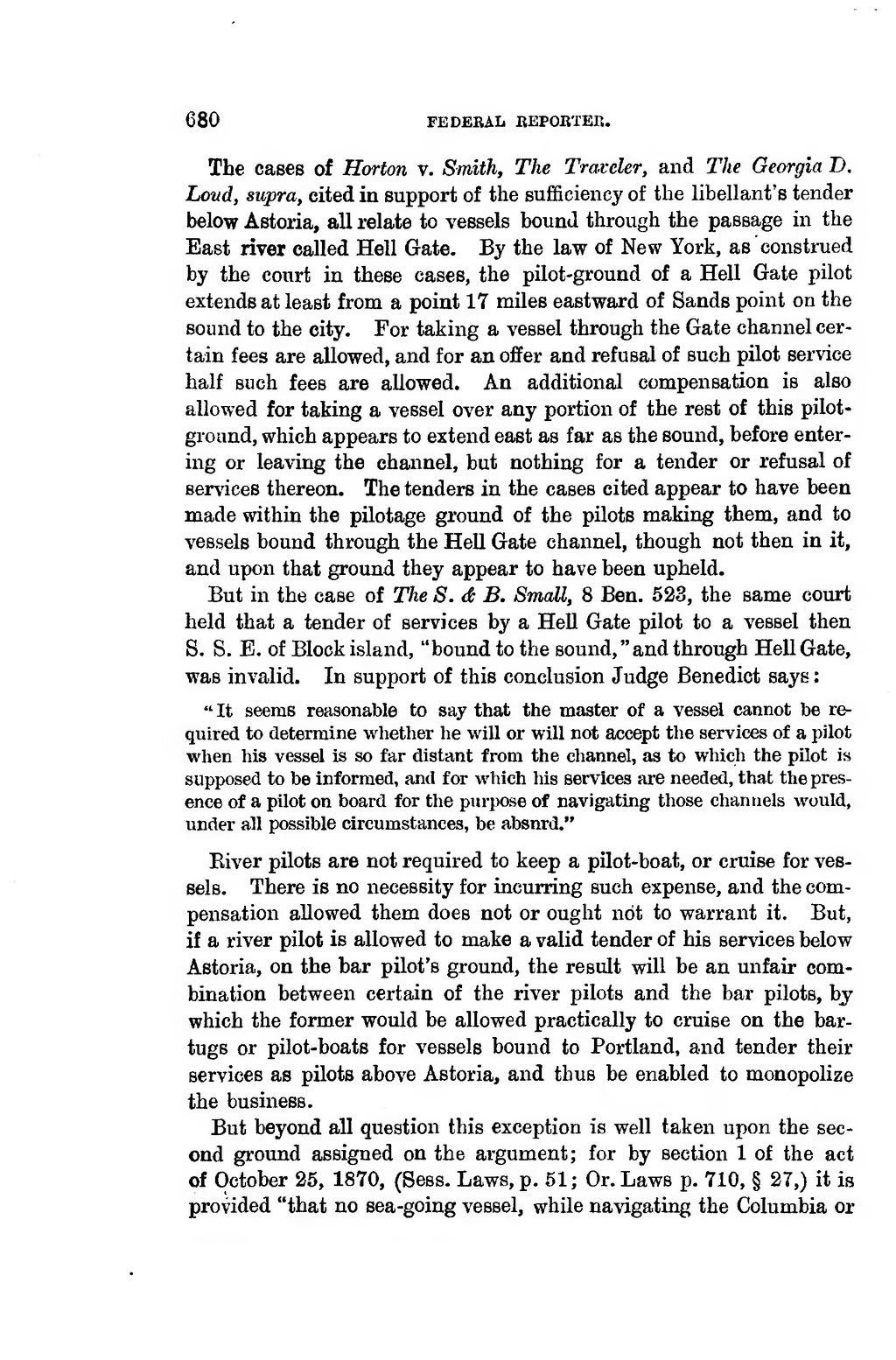680 FEDERAL REPORTER. �The cases of Horton v. Smith, The Travcler, and The Georgia D. Loiid, supra, cited in support of the sufficiency of the libellant's tender below Astoria, all relate to vessels bounJ through the passage in the East river called Hell Gate. By the law of New York, as construed by the court in these cases, the pilot-ground of a Hell Gate pilot extendsat least from a point 17 miles eastward of Sands point on the Sound to the city. For taking a vessel through the Gate channel cer- tain fees are allowed, and for an ofifer and refusai of such pilot service half such fees are allowed. An additional compensation is also allowed for taking a vessel over any portion of the rest of this pilot- ground, which appears to extend east as far as the sound, before enter- ing or leaving the channel, but nothing for a tender or refusai of services thereon. The tenders in the cases cited appear to have been made within the pilotage ground of the pilots making them, and to vessels bound through the Hell Gate channel, though not then in it, and upon that ground they appear to have been upheld. �But in the case of The S. e B. Small, 8 Ben. 523, the same court held that a tender of services by a Hell Gate pilot to a vessel then S. S. E. of Blockisland, "bound to the sound, " and through Hell Gate, was invalid. In support of this conclusion Judge Benedict says : �"It seems reasonable to say that the master of a vessel cannot be re- quired to determine whether he will or will not accept the services of a pilot when his vessel is so far distant from the channel, as to which the pilot is supposed to be informed, and for which his services are needed, that the pres- ence of a pilot on board for the purpose of navigating those chantiels would, under all possible circumstances, be absurd." �River pilots are not required to keep a pilot-boat, or cruise for ves- sels. There is no necessity for incurring such expense, and the com- pensation allowed them does not or ought not to warrant it. But, if a river pilot is allowed to make a valid tender of his services below Astoria, on the bar pilot's ground, the resuit will be an unfair com- bination between certain of the river pilots and the bar pilots, by which the former would be allowed practically to cruise on the bar- tugs or pilot-boats for vessels bound to Portland, and tender their services as pilots above Astoria, and thus be enabled to monopolize the business. �But beyond all question this exception is well taken upon the sec- ond ground assigned on the argument; for by section 1 of the act of October 25, 1870, (Sess. Laws, p. 61; Or. Laws p. 710, § 27,) it is provided "that no sea-going vessel, while navigating the Columbia or ��� �
